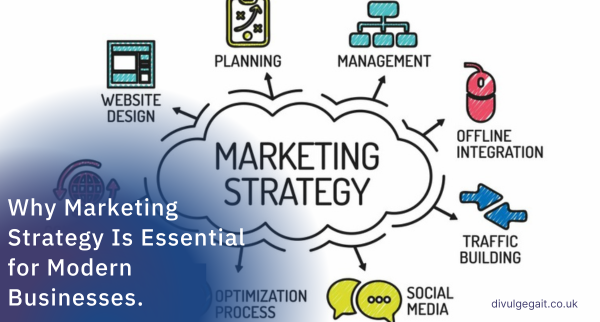Businesses are constantly under pressure to distinguish themselves, engage customers, and promote sustainable growth in today’s dynamic digital economy. Even the most inventive goods and services may fail to attract attention if they lack a strong marketing plan. A strong marketing plan serves as a guide for company growth and is more than just advertising.
Understanding the Role of a Marketing Strategy
A marketing strategy is the foundation that shapes how a business communicates its value to customers. It provides direction for branding, messaging, and customer engagement, ensuring consistency across all channels. Without it, businesses risk fragmented messaging, wasted resources, and missed opportunities.
Key elements of an effective marketing strategy include:
- Market Research – Understanding customer needs, preferences, and behaviors.
- Brand Positioning – Establishing a unique and compelling identity.
- Target Audience Identification – Pinpointing the ideal customers and tailoring messaging accordingly.
- Content and Messaging Strategy – Crafting compelling narratives that connect with audiences.
- Channel Selection – Choosing the right platforms, whether social media, email marketing, SEO, or paid ads.
- Performance Metrics and Analytics – Measuring results and optimizing campaigns for better outcomes.
Why Your Business Needs a Strong Marketing Strategy
1. It Enhances Brand Awareness and Visibility
A marketing strategy ensures that your brand remains top-of-mind for consumers. Whether through SEO, social media, or content marketing, strategic efforts create multiple touchpoints that reinforce brand recognition and trust.
2. It Drives Customer Engagement and Loyalty
Today’s consumers expect personalized and meaningful interactions. A strategic approach helps businesses craft relevant content, engage customers at the right moments, and nurture long-term relationships that lead to repeat business and brand advocacy.
3. It Maximizes Resource Efficiency
Without a marketing strategy, businesses often waste time and money on ineffective campaigns. A clear plan ensures that marketing efforts align with business goals, maximizing return on investment (ROI) and minimizing unnecessary spending.
4. It Adapts to Market Changes
Markets evolve, and consumer behaviors shift rapidly. A strong marketing strategy provides the flexibility to pivot when needed, leveraging data and insights to adjust messaging, tactics, and channels for continued success.
5. It Gives You a Competitive Advantage
A well-executed marketing strategy helps businesses differentiate themselves from competitors. By clearly defining unique selling propositions (USPs) and targeting the right audience, businesses can carve out a distinct position in the market.
Building a Winning Marketing Strategy
Creating an effective marketing strategy requires careful planning and execution. Start by analyzing your current market position, setting clear goals, and identifying key performance indicators (KPIs). Leverage data-driven insights to fine-tune campaigns and maintain agility in an ever-changing landscape.
A strong marketing strategy isn’t optional, it’s a necessity. It provides structure, direction, and a competitive edge in today’s saturated marketplace. Businesses that invest in strategic marketing gain better visibility, stronger customer connections, and sustainable growth.
If your business isn’t seeing the results it should, it might be time to refine your marketing strategy. Need expert guidance? Divulge Gait specializes in crafting tailored marketing strategies that drive real results. Let’s build a roadmap to your business success.


